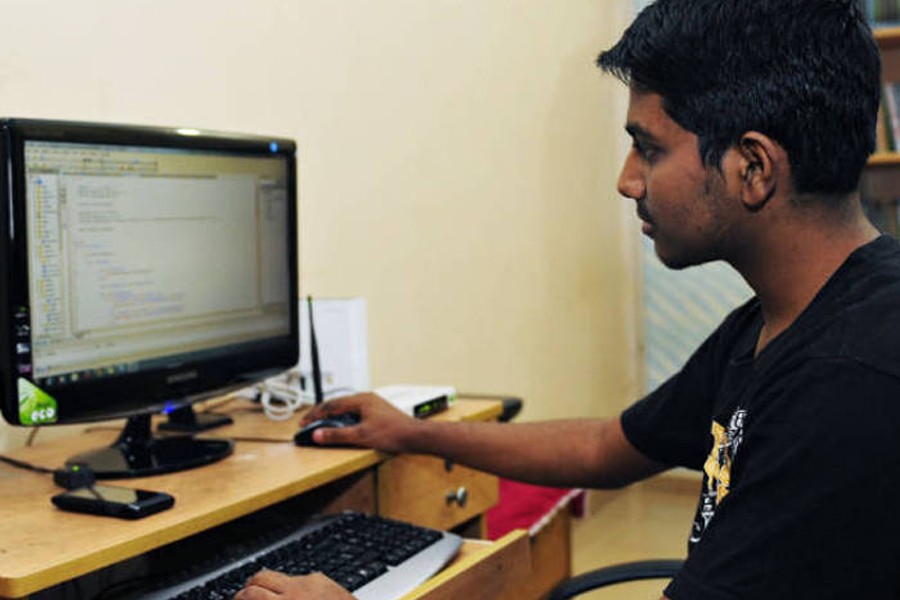The ongoing Covid-19 pandemic is forcing many children and youths to go for excessive use of screen time, which could cause an adverse impact on their mental and physical health both in the short and long run, according to experts.
They said young students could be affected in many ways like obesity, mental stress and eye strain due to non-stop and longer use of screen time.
Parents said the screen time has skyrocketed for the kids of all ages especially due to online classes as the pandemic entered into sixth month.
They said some students spend around 6-7 hours at a stretch for online classes, others use video games and social media.
They said the adverse impacts are not happening only from increased use of screen time but also due to less physical activity and almost no-use of time on the playground.
According to the World Health Organisation (WHO) daily screen time guidelines for children and infants, the infants should not get any gadget while the kids between the ages of 01 and 05 should spend no more than one hour daily staring at the devices.
The WHO does not provide specific limits for older children, but some researchers suggested that excessive screen time for teenagers could be linked to mental health problems, such as anxiety and depression and eyesight problems.
However, kids were already spending far more time than recommended with screens before the pandemic. This is continuing for years.
Chairman and Professor of Psychiatry Department at Bangabandhu Sheikh Mujib Medical University Shalahuddin Qusar Biplob said that excessive use and addiction to gadgets certainly is a problem, and it is a problem like any other addiction.
He ruled out any adverse impact of normal screen time. "But uncontrolled use or excessive use certainly have bad impact on young students," he said, adding that such use should be controlled.
Ayman Farid, a student of a private school in the capital, spends six hours everyday for online classes. He gets tired after completion of the class, according to his mother Husneara Khatun, who is now confused about the online classes.
Husneara said she requested the school authorities to reduce the class hours, but they did not pay any heed to her request.
Another private school student of class six Sayema Pritha is suffering from headache after 6-7 hours of online classes. Her mother Nisitha Rahman said she is planning to stop online classes for now. "I have decided not to let her attend all the classes online."
A recent study in the journal Lancet Child and Adolescent Health found kids who spent more than two hours a day of screen time performed worse on cognitive tests compared to peers who spent less time.
These cognitive skills included memory, processing speed, language, and attention span.
To solve the problem, renowned ICT expert Habibullah N Karim said the authorities could take classes in phases. "They can split 24 hours in different phases as it is online class and there is no need to hold the classes at a stretch," he said.
He also recommended not to use small screen or mobile screen for online classes.
Mr Karim said there is no way but to get used to the new lifestyle. The solutions for the health risks will gradually be resolved, he added.


